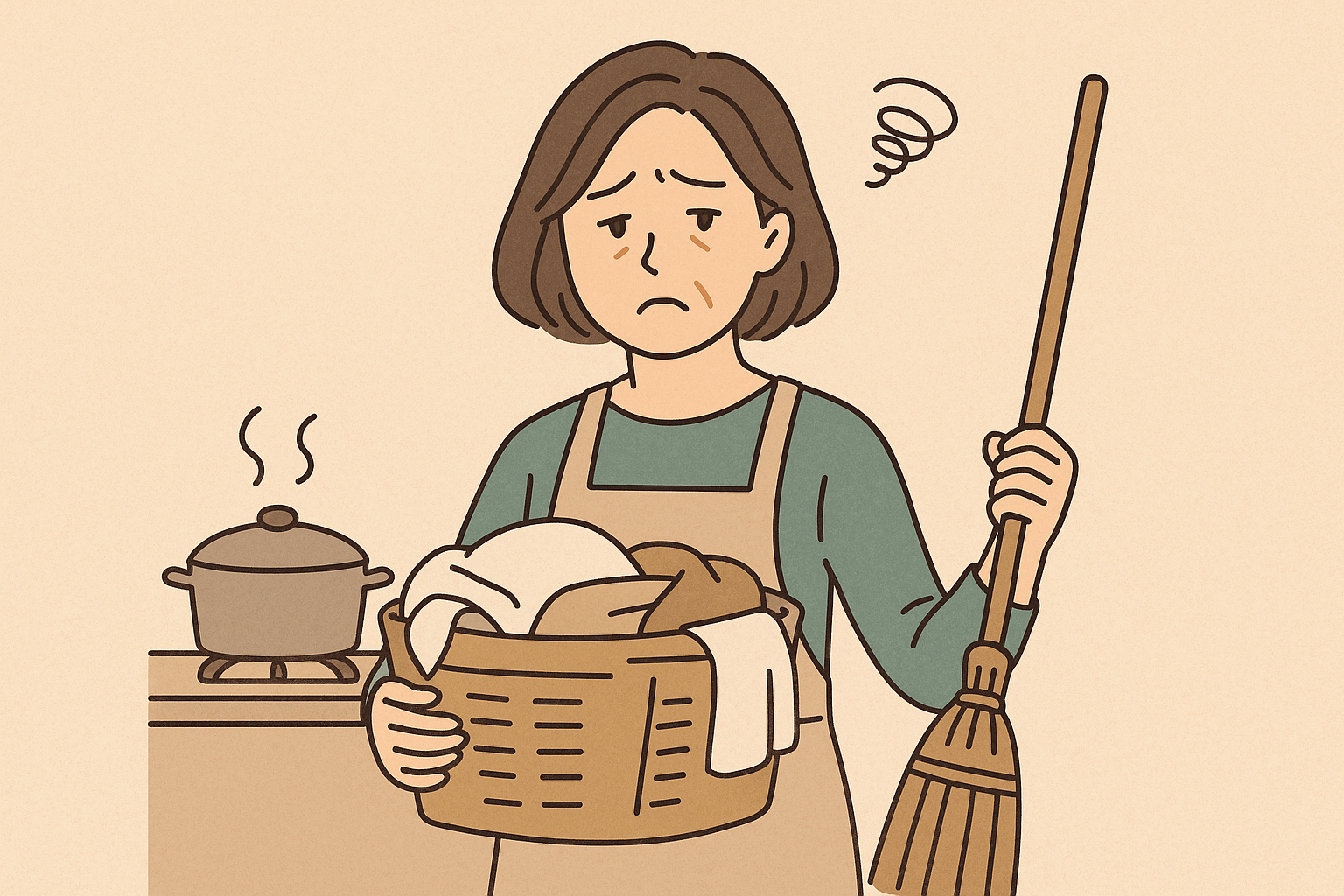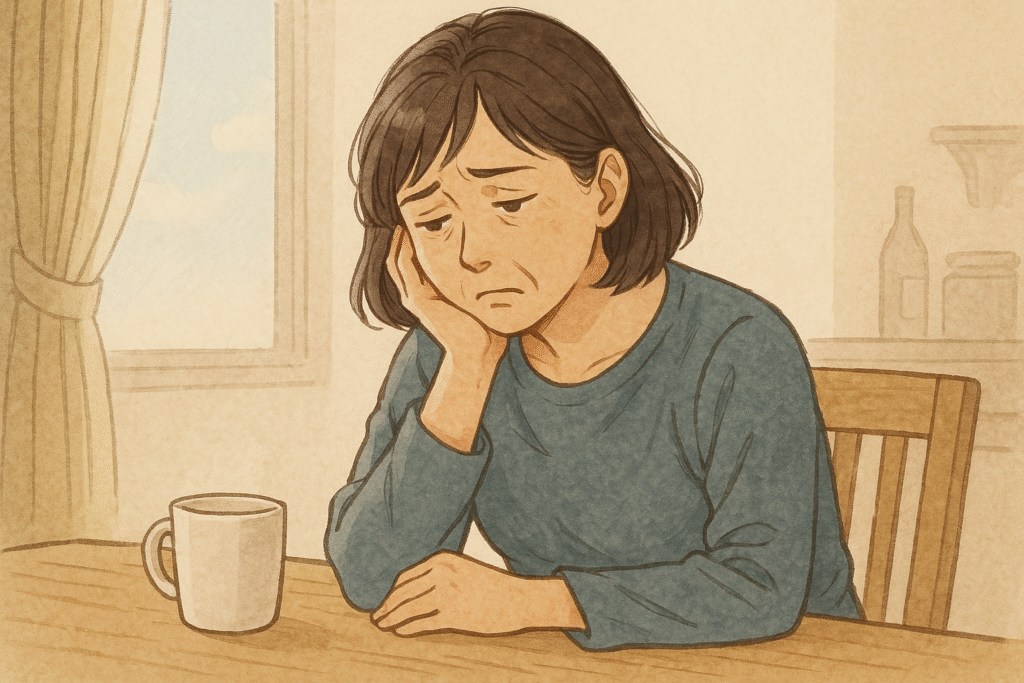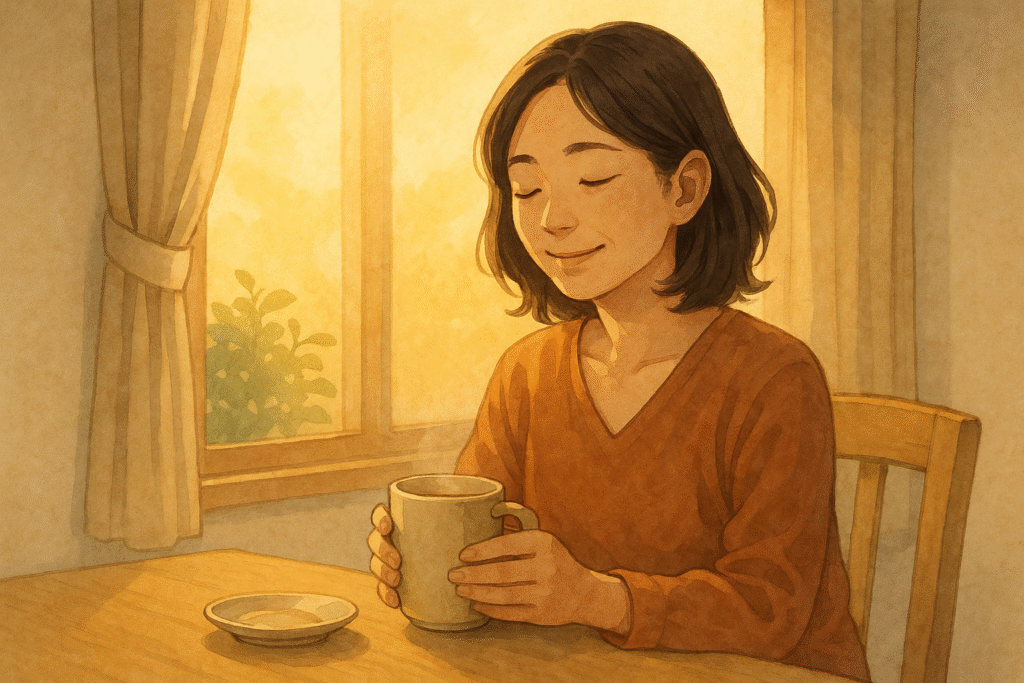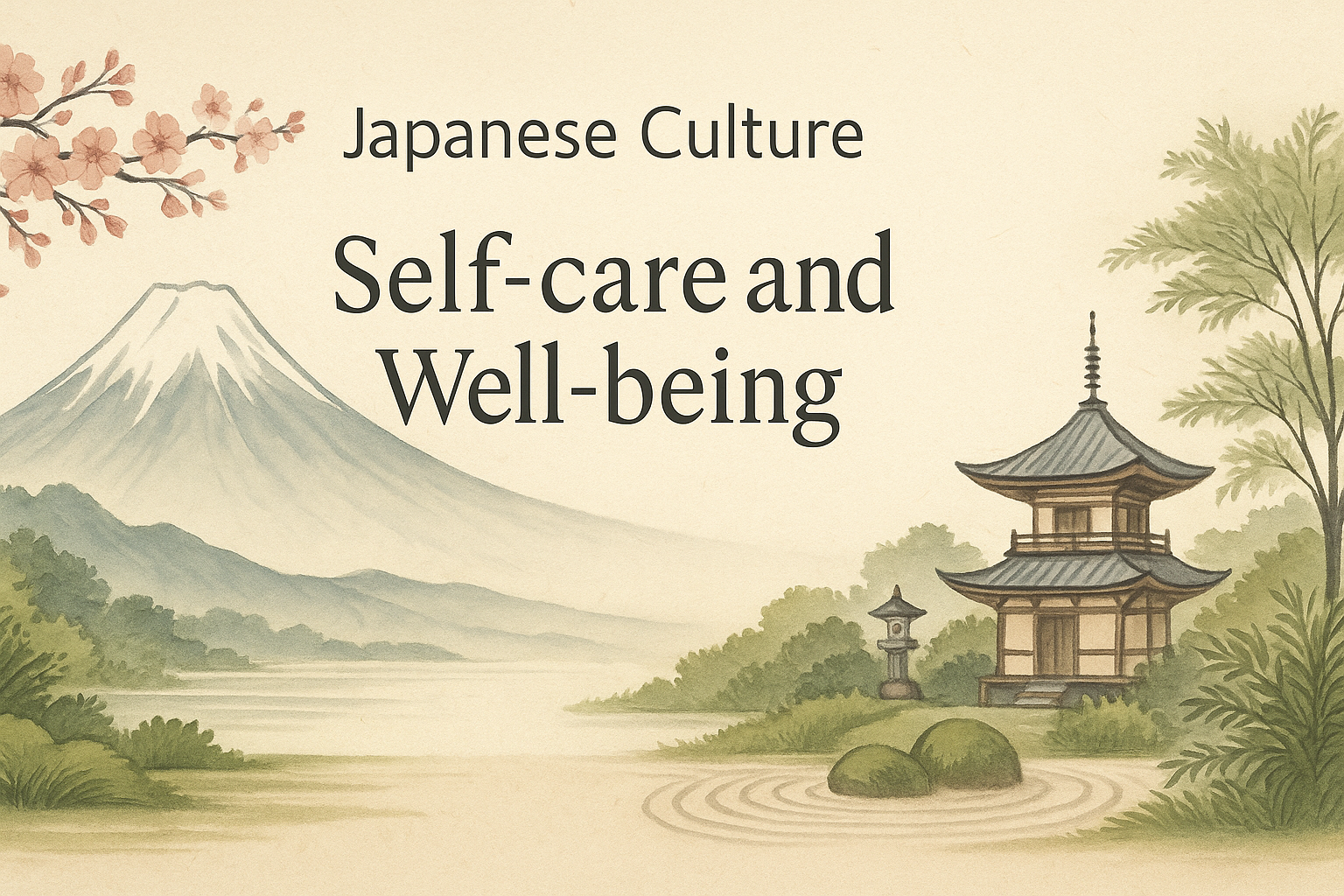In Japan’s quietly ordered homes, many women in their 40s and beyond carry invisible fatigue—a tiredness not from doing too much, but from shouldering countless roles while appearing calm. You may hear the phrase: “I feel tired even though I did nothing.” This article explores why such midlife exhaustion is common in Japan’s households, and how small self-care rituals rooted in Japanese culture can help honor this fatigue and restore balance. (Related article in Japanese | “何もしてないのに疲れた”は心のサイン)
Understanding Invisible Fatigue in Japanese Culture
In Japanese culture, many women in their 40s quietly shoulder multiple responsibilities—housekeeping, child-rearing, community involvement—while being expected to maintain a sense of calm and order. This societal backdrop makes it difficult to express fatigue openly.
Another cultural factor is that many men traditionally work long hours and contribute little to household tasks, often due to Japan’s demanding work culture. This places an even greater burden on women, especially in households where the husband is frequently absent for work or works late hours.
The phrase “何もしていないのに疲れた” (“I’m tired even though I did nothing”) reflects this invisible fatigue, common among Japanese women, especially during perimenopause, when physical and emotional changes intensify.

The Reality of Midlife Fatigue in Japan
In modern Japanese households, midlife fatigue is a common but often unspoken reality. Social expectations continue to position women as primary caregivers and household managers, even as they themselves experience the physical and emotional transitions of midlife, such as perimenopause.
Adding to this burden is Japan’s demanding corporate work culture, where many men work long hours, commute long distances, or are assigned to live away from their families (単身赴任, tanshin funin). As a result, many women manage the home almost entirely alone during the week, even when married.
Daily tasks—housekeeping, child-rearing, caring for elderly parents, community duties—can feel relentless and isolating. Despite this, women are often perceived by those around them as “doing fine,” which makes acknowledging and addressing fatigue even harder.
The phrase “何もしていないのに疲れた” (“I’m tired even though I did nothing”) captures this invisible exhaustion, reflecting not laziness but the accumulation of physical strain and psychological “role fatigue.”
This background helps explain why midlife fatigue in Japan is less about doing too little and more about the silent weight of doing too much—without validation or adequate support.
How Foreigners Can Appreciate This Quiet Struggle
If you’re living in or visiting Japan:
- Recognize signs of invisible fatigue—a tidy home does not always reflect an easy life.
- Appreciate the emotional labor many Japanese women perform behind the scenes.
- Offer empathy and respect personal space when interacting with Japanese families; exhaustion is often unspoken but deeply felt.
A Story: Glimpse into Everyday Exhaustion

Each morning, W-san whispered to herself, “I feel tired even though I did nothing yesterday.”
Her days unfolded in a quiet, repetitive cycle: preparing meals, managing laundry, cleaning the home, coordinating her children’s school activities, participating in community events—all while attending to the emotional needs of her family. Yet, at the end of each day, she struggled to remember what she had actually done.
The nights offered no respite. Interrupted sleep, worries about her aging parents, and the subtle but real discomforts of perimenopause left her physically drained and emotionally depleted.
Her husband, like many Japanese men, worked in a distant city during the week and returned home briefly on weekends. Even when present, he often stayed isolated, working late into the night in a separate room. The emotional distance weighed heavily on W-san, leaving her feeling like the sole caretaker of the household.
Her eldest son’s innocent comment—“Mom, you always seem tired”—revealed how visible yet misunderstood her exhaustion had become. Her younger son’s bursts of energy and affection gave her fleeting moments of joy, but also underscored the reality that she needed stamina and emotional resilience to support him.
Over time, W-san began to realize that this was not simple tiredness but “role fatigue”: the deep mental strain that comes from constantly serving others while suppressing one’s own needs.
This invisible exhaustion, familiar to many women in Japan, is not just about physical depletion but about the psychological toll of being expected to “keep things together” without complaint.
In these quiet, lonely mornings, W-san started to see the importance of acknowledging her fatigue—not as a weakness, but as a sign that she deserved rest and care.
Practical Japanese Self-Care Tips for Midlife Well-Being
Inspired by W-san’s journey, here are practical tips you can try—even outside Japan:
- Warm your feet: A USB-powered electric foot warmer promotes relaxation and improves sleep quality, supported by science.
- Use roll-on aroma oils: Applying a calming natural scent to your wrist can help you pause and reset during busy days.
- Wear gentle leg warmers at night: To sleep better without restrictive socks.
Recommended items:
- Electric Foot Warmer: Perfect for chilly evenings to support restful sleep.
- Roll-on Aroma Oil: Compact and easy to incorporate into your routine.
- Soft Leg Warmers: Keep ankles warm without tightness for bedtime comfort.
Conclusion: Embracing Rest as a Daily Ritual

Feeling tired—even on a quiet day—is not a failure or a weakness. It is a subtle but important signal that your body and mind are asking for care.
In a society like Japan’s, where dedication and perseverance are deeply valued, many people—especially women—are conditioned to suppress these signals, equating rest with laziness or lack of effort. But in truth, recognizing invisible fatigue is a mark of self-awareness and self-respect.
W-san’s discovery was simple yet profound: “Maybe taking care of my tired self is what I need most now.” Her realization is universal: we all need to learn when to pause, acknowledge exhaustion, and offer ourselves kindness—especially during midlife, when physical, emotional, and social challenges converge.
Whether you live in Japan or simply appreciate its culture, take time to notice this invisible exhaustion in yourself and others. Honor rest as a meaningful, restorative practice—not just a response to overwork but as an essential part of balanced living.
Create your own small rituals—warming your feet before bed, enjoying a calming scent, or simply allowing yourself a few moments of quiet reflection—to nurture well-being and resilience every day.


Comments